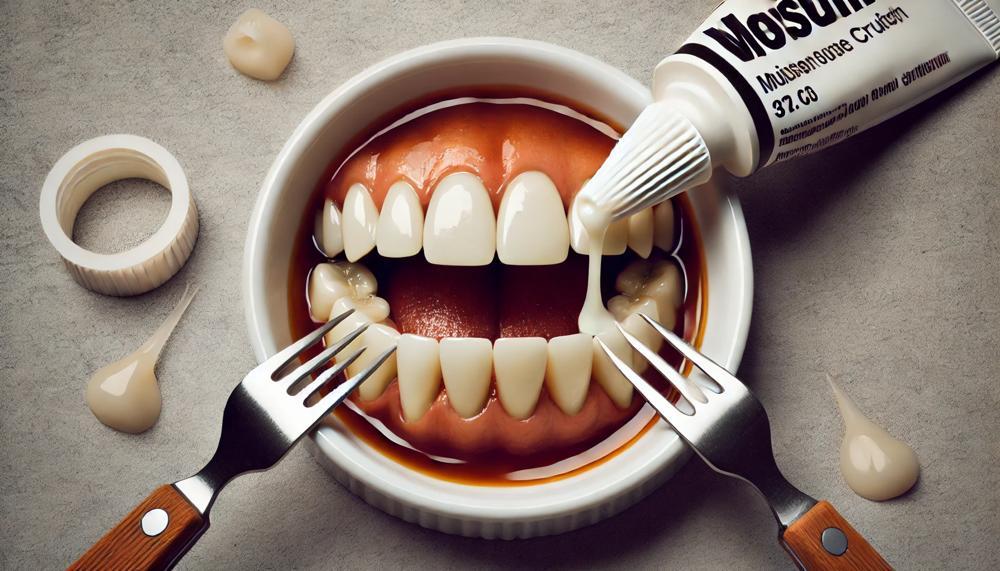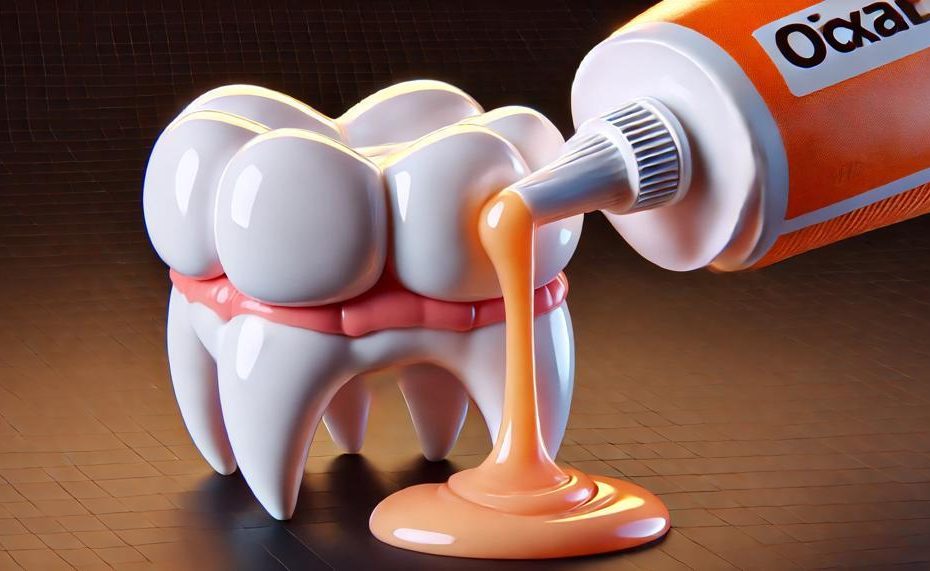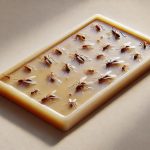Yes, glue can potentially damage your teeth if used incorrectly or if the wrong type of adhesive is applied. Here are the key takeaways:
• Dental cement/glue designed specifically for teeth is safe when used as directed by a dentist
• However, using regular household glues or superglues on teeth can lead to tooth decay, discoloration, and even necessitate extraction
• A startling 1 in 5 people have attempted to fix a dental issue with an inappropriate adhesive, potentially causing irreparable harm
Attempting DIY dental repairs with improper adhesives is extremely risky and can have severe, long-lasting consequences for your oral health. While dental cements play an important role in restorative procedures when applied by professionals, using the wrong glue on your teeth is a recipe for disaster. To protect your smile, it’s crucial to see a dentist for any dental work instead of taking matters into your own hands.
Table of Contents
What is dental glue?
| Yes, dental glue can undoubtedly cause harm to your teeth if used improperly. | Using excessive amounts or applying it incorrectly can allow the adhesive to seep into the gums, triggering inflammation and irritation. | Dental cement should only be utilized under professional dental supervision to evade potential tooth damage or the need for extraction. |
| Superglue is never an acceptable substitute, as it can severely compromise tooth integrity. | While over-the-counter dental adhesives offer temporary solutions, long-term use requires products specifically designed for dental applications. | Improper application techniques or misuse of these specialized materials can lead to discoloration, decay, and other detrimental effects on oral health. |
| It is crucial to follow the manufacturer’s instructions meticulously and consult a dentist for proper usage to ensure the safety and longevity of your teeth. | Dental glue serves as a valuable tool for protecting damaged teeth, but its mishandling can swiftly transform it into a hazard. | Exercising caution and seeking professional guidance is imperative when utilizing dental adhesives to maintain optimal dental health. |
How does dental glue work?
Yes, dental glue can cause damage to the teeth if it is not used properly. Improper use can lead to inflammation, decay, and discoloration of the teeth. This is why it is important to consult with a dentist before using dental glue and to follow instructions carefully.
Super glue should never be used as a substitute for dental glue. Super glue contains chemicals that can cause harm to the teeth and surrounding tissue. It is designed for non-biological surfaces and is not safe for oral use.
Dental glue works by using compression or chemical bonding to hold restorations in place. Some types of dental glue are more durable than others and may be recommended for permanent use, while others are designed for temporary restorations.
It is also important to note that dental glue may not be suitable for all types of restorations. For example, it may not have enough strength to hold larger restorations such as bridges or implants. In these cases, a different method of attachment may be recommended by a dentist.
In addition to following instructions and consulting with a dentist, it is also important to properly care for your dental restorations while using dental glue. This includes avoiding hard or sticky foods that could put pressure on the restoration and using proper brushing and flossing techniques.
Types of dental glue: permanent vs temporary
There are several key differences between permanent and temporary dental glue, including composition, duration of use, and impact on the health of our teeth.
| Types of Dental Glue | Composition | Duration of Use | Impact on Teeth |
|---|---|---|---|
| Temporary | Soft and flexible materials | Short-term (3-6 weeks) | Provides a good grip and easily removed without damage to surrounding tissue |
| Permanent | Hard and brittle materials | Long-term | Durable for long-term restorations but may cause discoloration and difficult to remove |
One of the main differences between permanent and temporary dental glue is their composition. Temporary glue is made up of soft and flexible materials, while permanent glue is made of hard and brittle materials. This affects their durability, with permanent glue being better suited for long-term restorations.
Another difference is the duration of use. Temporary dental glue is meant to be used for a short period of time, usually 3 to 6 weeks, while permanent dental glue is designed for longer-term use. This means that temporary glue may need to be replaced more frequently, whereas permanent glue can last for years.
In terms of impact on teeth, temporary dental glue is generally considered safer as it is easily removed without causing damage to the surrounding tissue. On the other hand, permanent dental glue may cause discoloration and can be difficult to remove.
Ultimately, the choice between using permanent or temporary dental glue depends on the specific needs and circumstances of the patient. Dentists will consider factors such as longevity and aesthetic requirements when choosing the best type of glue for a patient’s needs.

Types of dental glue: composition
The common ingredients used in dental glue include methyl methacrylate, benzoyl peroxide, fluoride, polyurethane, ethyl cyanoacrylate, and silicon dioxide. These ingredients help to create a strong bond between dental restorations and natural teeth. However, they can also have negative effects on the health of teeth.
Methyl methacrylate is a resin that can cause irritation and allergic reactions in some individuals, leading to inflammation and discomfort in the gums and surrounding tissues.
Benzoyl peroxide, commonly used as a catalyst in dental glue, can cause tooth sensitivity ranging from mild discomfort to severe pain.
Fluoride is added to dental glue to help strengthen tooth enamel and prevent decay. However, excessive exposure can lead to fluorosis, causing discoloration and weakening of the teeth.
Polyurethane, ethyl cyanoacrylate, and silicon dioxide are also commonly found in dental glue and help to improve its strength and durability. However, they can also cause irritation and allergic reactions in some individuals.
It is important to follow the directions for use carefully when using dental glue and to consult with a dentist if any irritation or allergic reactions occur.
How do dentists choose dental glue?
Dentists meticulously evaluate several crucial factors to determine the most suitable dental glue for their patients’ unique needs. Here’s a detailed overview of their thought process:
| Factor | Explanation |
|---|---|
| Treatment Type | The specific dental procedure dictates the required strength and durability of the glue. For instance, permanent restorations like crowns or bridges necessitate a highly durable cement, while temporary restorations may use a weaker, easily removable adhesive. |
| Longevity | Permanent dental work demands a long-lasting glue that can withstand prolonged exposure to oral forces and environmental factors. Conversely, temporary treatments may utilize a less durable adhesive designed for shorter-term applications. |
| Aesthetics | For visible restorations, the glue’s color and potential for discoloration over time are considered. Tooth-colored or translucent cements are preferred for an aesthetically pleasing outcome. |
| Biocompatibility | Dentists prioritize glues with minimal risk of adverse reactions or toxicity to ensure patient safety and comfort. Ingredients like bisphenol-A and specific methacrylates may be avoided in some cases. |
| Ease of Use | Factors like working time, setting mechanism, and clean-up requirements influence the choice of glue for optimal handling and efficiency during the procedure. |
Ultimately, dentists judiciously evaluate each patient’s unique oral condition, treatment goals, and personal preferences to select the most appropriate dental glue. This meticulous approach ensures a durable, biocompatible, and aesthetically pleasing restoration tailored to the individual’s needs.
Application techniques
Here are the proper application techniques for using glue to avoid potential damage to your teeth:
| Step | Application Technique | Rationale |
| 1 | Choose a non-toxic, water-based dental glue designed for oral use, avoiding industrial adhesives like super glue. | Dental-grade glues are safe for oral contact and provide a strong bond without damaging teeth. |
| 2 | Thoroughly clean the affected area with a soft-bristled toothbrush and mild toothpaste, then rinse with water. | Ensures proper adhesion and prevents trapping bacteria or debris that can cause tooth decay. |
| 3 | Apply a small amount of glue onto the affected area using a cotton swab or clean toothpick. | Using too much glue can seep into gums, causing irritation or gum disease. |
| 4 | Hold the affected area in place for at least 30 seconds to allow the glue to set properly. | Ensures a strong and lasting bond. |
| 5 | Avoid eating or drinking for at least an hour after application to allow the glue to fully set. | Prevents the glue from breaking down or dislodging before it has fully cured. |
| 6 | Seek professional dental help if you experience any discomfort or irritation after using glue. | A dentist can assess the situation and provide proper treatment if necessary. |
By following these application techniques, you can safely and effectively use dental glue for temporary dental repairs or adjustments without risking potential damage to your teeth.
Can you use super glue on your teeth?
No, it is absolutely not safe to use super glue (cyanoacrylate adhesive) on your teeth, even in a dental emergency. Here’s why:
| Risks | Explanation | Safer Alternative |
| Tooth Damage | Super glue is not designed for dental use and can cause irreparable damage to tooth enamel and gums. It may also trap bacteria, leading to infections. | Use dental wax or temporary dental cement designed for emergency repairs until you can see a dentist. |
| Toxicity | Cyanoacrylate adhesives can release toxic fumes and chemicals when curing, which can be harmful if ingested or inhaled. | Avoid ingesting any non-food-grade substances. Seek immediate dental care for any broken or dislodged tooth. |
| Bonding Issues | Super glue may not bond properly to tooth surfaces, leading to premature failure and potential choking hazards. | Only use dental materials specifically designed for temporary tooth repair, such as dental cement or resin. |
While super glue may seem like a quick fix, it can cause severe and irreversible damage to your teeth and oral health. In a dental emergency, the safest approach is to seek professional dental care as soon as possible.
Conclusion
While dental cements play a vital role in restorative procedures, using the wrong adhesive on your teeth is a recipe for disaster. A startling 1 in 5 people have attempted DIY dental repairs with improper glues like superglue, potentially causing irreversible harm. Superglue contains toxic chemicals never intended for oral use – it can severely compromise tooth integrity, leading to decay, discoloration, and even extractions.
Dental cements designed specifically for teeth are safe when applied by professionals following proper techniques. However, mishandling these specialized materials through excessive amounts or incorrect application allows the adhesive to seep into the gums, triggering inflammation and irritation. The wrong dental glue can act like a ticking time bomb, slowly degrading your oral health.
Attempting at-home dental work is an extremely risky gamble with your smile. While the convenience of a quick fix is tempting, using improper adhesives trades short-term solutions for long-term nightmares of tooth damage and expensive repairs. Protecting your pearly whites is priceless – see your dentist instead of taking matters into your own hands.






